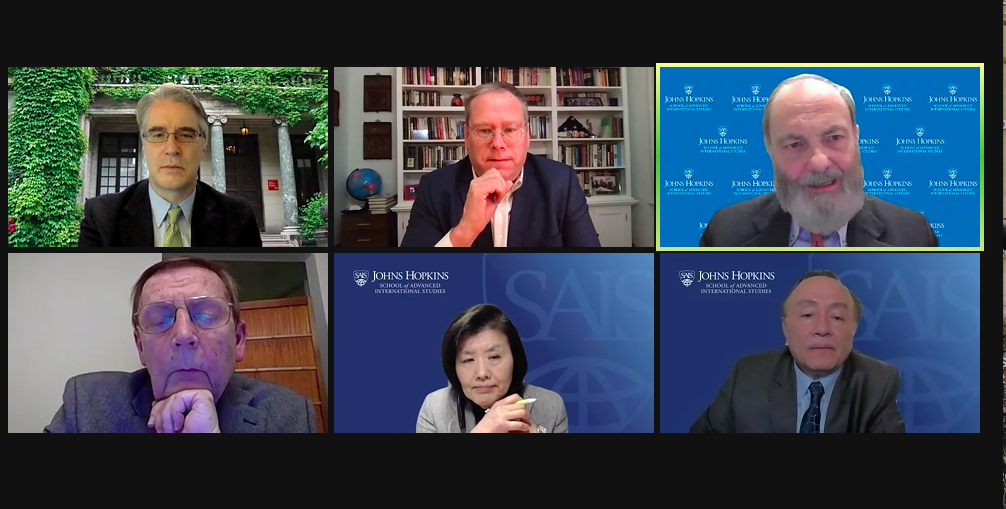Global Economic Crisis and US-Japan Cooperation 1971 – 2021
Global Economic Crisis and US-Japan Cooperation 1971 – 2021
On January 12th, the Reischauer Center hosted a virtual conference exploring U.S.-Japan cooperation and conflict in finance, energy, and trade since the 1971 Nixon Shocks. Six panelists, including the Reischauer Center’s Director Dr. Kent Calder and Senior Advisor Dr. Bill Brooks, shared their insights on past and future trajectories of the bilateral relationship.

Despite the conflict that existed in the economic relationship between Japan and the U.S. during the 1970s and 1980s, there were key areas of collaboration due to the underlying trust and shared visions between the two countries. As Dr. Bill Brooks pointed out while recounting his time at the U.S. embassy in Tokyo in the 1980s, crises led to deeper networks between the nations as government officials and business leaders worked closely together to solve global problems. Similarly, Dr. William Grimes highlighted the central role that Japan and the U.S. have played in crisis management in recent years. Looking forward, Dr. Yoshiko Kojo emphasized that despite successes in the bilateral economic relationship between Japan and the U.S., the greatest remaining problem is how the two countries will cooperate in multilateral frameworks. Dr. Kent Calder discussed how changing dimensions in energy security in the past twenty years have also had significant impacts on the bilateral relationship. Pointing out Saudi Arabia’s recent exports of blue ammonia to Japan, Amb. Abdulaziz Turkistani explored the potential of alternative energy in new forms of cooperation between Saudi Arabia, Japan, and the U.S. in his comments. Finally, Amb. Kurt Tong shared his thoughts on how the lessons learned from the U.S.-Japan economic relationship could be applied to U.S.-China relations.
In the Q&A session, panelists explored these topics in more depth while also touching on the role of Iran in energy security, RCEP, and the relationship between the “avoiding high yen mentality” and the globalization of interests in Japan.
Categories
© 2025 The Edwin O. Reischauer Center for East Asian Studies at the Johns Hopkins School of Advanced International Studies (SAIS), a division of the Johns Hopkins University. All Rights Reserved.
Sitemap | Custom WordPress Design, Development & Digital Marketing by time4design.


